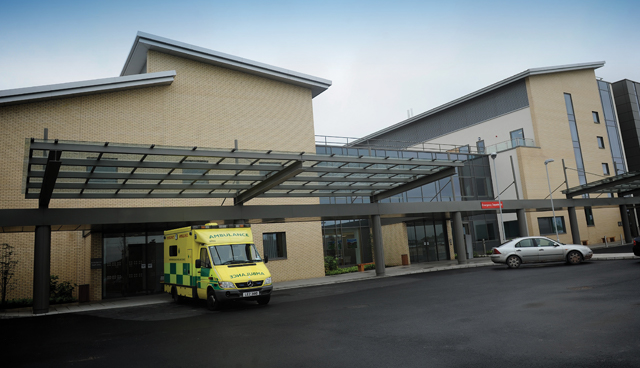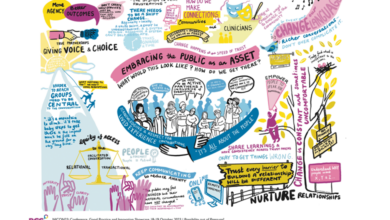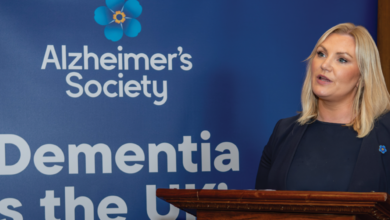Health and social care services plan

The Strategic Framework for Rebuilding Health and Social Care Services, first released in June 2020 and updated sporadically since, provides the framework for how Northern Ireland’s health system will be rebuilt after the Covid-19 pandemic.
The publication of phased plans under the Rebuilding Health and Social Care Services plan had to be halted toward the back end of 2020 due to the severity of the second wave of Covid-19. Having initially published rebuilding plans for each HSC Trust and the Ambulance Service in both Phase 1 (April to June 2020) and Phase 2 (July to September), publication of phased rebuilding plans was paused for phases 3 and 4 after the second wave of Covid-19 hit Northern Ireland severely and put the health system under significant pressure once again.
Publication of the phased plans resumed in April 2021, with the release of the April-June Phase 6 plans. The phased plans all fall under the Strategic Framework for Rebuilding Health and Social Services, which was published by Health Minister Robin Swann MLA in June 2020.
Writing in his foreword to the framework, Swann said that the pandemic had “presented our HSC system with its biggest challenge since inception” but also admitted that the health system “faced huge strategic challenges prior to Covid-19, which included an ageing population, increasing demand, long and growing waiting lists, workforce pressures, the emergence of new and more expensive treatments and ongoing budget constraints”.
The effect of Covid on the health system is seen in the increases in various waiting time statistics, which though already significant, worsened throughout periods of lockdown and placed severe stress on the health system. The framework states that “population health is, on balance, likely to be negatively affected by the wider impacts of Covid-19”. The framework report states that the “disruption has been particularly acute in elective services which have been stood down, multidisciplinary community teams and district nursing teams where student training would have generated additional footfall”.
|
The three principles governing HSC Trust incremental plans: • ensuring equity of access for the treatment of patients across Northern Ireland; • minimise the transmission of Covid-19; and • protect access to the most urgent services for the population. |
The framework states that ‘population health is, on balance, likely to be negatively affected by the wider impacts of Covid-19’. The framework report states that the ‘disruption has been particularly acute in elective services which have been stood down, multidisciplinary community teams and district nursing teams where student training would have generated additional footfall’.
Other challenges concurrent with the pandemic addressed in the framework document include Brexit, which requires an understanding of the implications for the sector of “the implementation of the Northern Ireland protocol and ensuring that the sector is prepared and risks are managed in areas such as workforce, health security and healthcare supplies”, and the Department’s budgetary position, which “continues to be hugely challenging, with the Department facing a funding shortfall in respect of forecast inescapable pressures necessary to maintain existing services”.
The service rebuilding plans included in the framework are planned to cover three-month periods from April 2020 to March 2022, after which time an Assembly election will be imminent. The HSC Trusts have adopted three principles in the development of their plans: ensure equity of access for the treatment of patients across Northern Ireland; minimise the transmission of Covid-19; and protect access to the most urgent services for the population.
Among the immediate priorities identified in the framework are reorganisation of HSC governance, with changes to governance frameworks implemented. The Department “through temporary amendments to the framework document, and the establishment of a new management board” is now giving direction to the HSC Board, the Public Health Agency, trusts and the Business Service Organisation in order to reflect the Minister’s wishes. These revised arrangements are “intended to be in place over the next two years [from 2020] to facilitate rapid decision making in rebuilding HSC services”.
In section five of the framework, the overarching approach of the incremental service plans is laid out. The framework states that this approach will involve “mandating the wide range of existing managerial clinical networks, project boards, task and finish groups or other service improvement vehicles to provide service specific incremental plans for their respective areas”, to be achieved by “reviewing the existing patient pathways, applying a range of Covid-19 factors and producing revised patient pathways to implement rebuilding services within the context of prevailing Covid-19 conditions”.
The framework then presents a checklist of aspects of health such as communication with patients, staff involvement, working environment risk assessment, workforce, etc. In a familiar tale with it comes to healthcare plans produced by the Executive, the framework is vague when it comes to concrete targets, thus making it difficult to analyse its implementation thus far. For instance, under the workforce heading, the framework states that “in line with the Workforce Strategy, [the HSC should] protect and support the HSC workforce by taking action to ensure the care and resilience of staff working in all HSC disciplines”; what action should be taken is not specified.
Some further detail is offered in the localised phased plans, for instance the Belfast Trust’s Phase 5 plan makes mention of the importance of allowing staff to avail of the annual leave denied to them by the pandemic last year, but also speaks in generalities in terms of staffing vaccination drives and makes no mention of how these numbers will be met or what numbers of staff will be required in the first place.
The Belfast Phase 5 plan notes that financial constraints are likely, and it is here that the crux of the issues facing the health services is revealed. Facing two unknowns in the guises of Covid and Brexit, it is the familiar inabilities to set targets or rely on funding that leave the HSCs attempting to rebuild in a sea of uncertainty.





